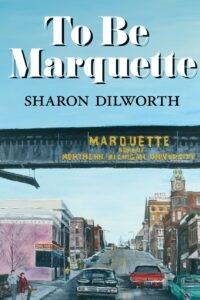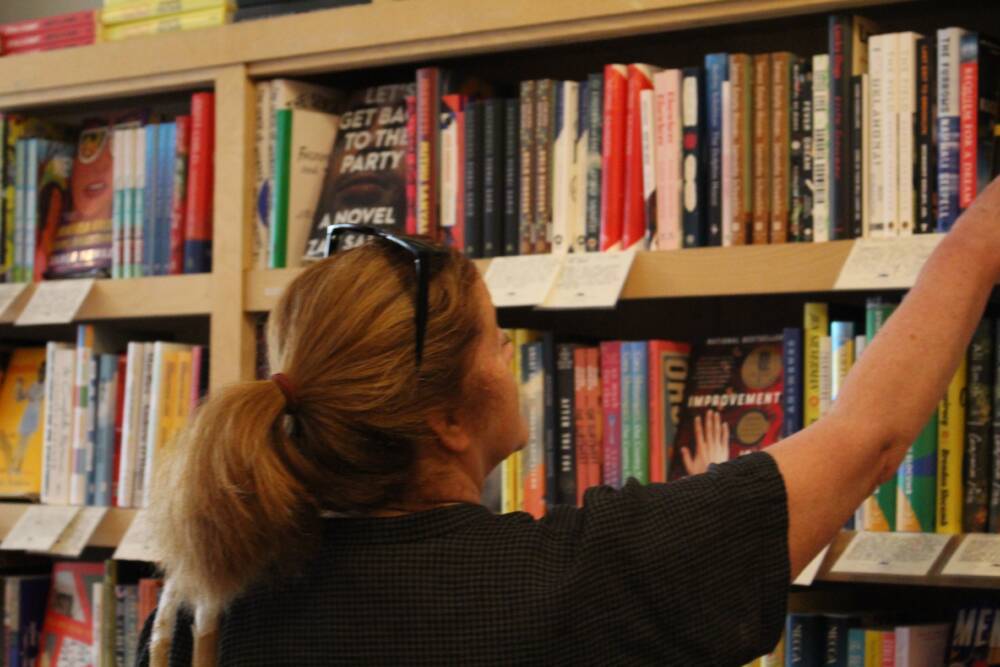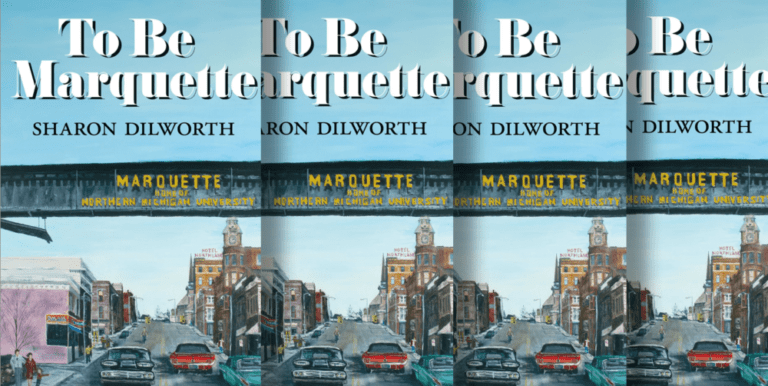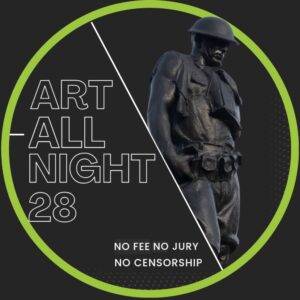From the Publisher: “Arriving in Marquette for her freshman year at Northern Michigan University, Molly enrolls in Dr. Robinson’s ecology studies class, hoping to learn more about the natural world and how to protect the planet from human impact. Together, Molly and her classmates, ‘the Crusoes,’ protest the development of Project ELF, a Navy program that is installing a series of extremely low-frequency transmitters across the Great Lake. While often Molly is preoccupied with the contingencies of freshman year—roommate problems, dormitory life, and dating—she begins to sense that the Project ELF protests may mask a more problematic dynamic between the students and faculty…”
More info About Sharon Dilworth: Sharon has published three collections of short stories, The Long White, Women Drinking Benedictine, and Two Sides, Three Rivers as well as two novels, Year of the Ginkgo and My Riviera. Dilworth has received an Iowa Award in Short Fiction, a Pushcart Prize in Fiction, and a Hopwood Award as well as grants from the National Endowment for the Arts and the Pennsylvania Council on the Arts.
Author Site About Jen Bannan: Jen’s credits include book of short stories, Inventing Victor, as well as stories in anthologies and literary journals like the Kenyon Review online, ACM, Passages North, Chicago Quarterly Review. She’s had non-fiction published in The Millions, Los Angeles Review of Books, The Rumpus, The Washington Post, and more.
Author Site
 JB: Your new novel is a poignant and sweet read—and it’s also funny. I loved the nostalgic feeling it gave me, being in that pre-cell phones world, where communications were more sporadic and you could be left with a sense of wonder. Molly is feeling like everything is so mysterious and cryptic. Sometimes the reader might even catch on before Molly does, but it’s easy to forgive her for her slips in judgement because she’s young and impressionable and open to magical thinking. Is wonder a feature of the campus novel?
JB: Your new novel is a poignant and sweet read—and it’s also funny. I loved the nostalgic feeling it gave me, being in that pre-cell phones world, where communications were more sporadic and you could be left with a sense of wonder. Molly is feeling like everything is so mysterious and cryptic. Sometimes the reader might even catch on before Molly does, but it’s easy to forgive her for her slips in judgement because she’s young and impressionable and open to magical thinking. Is wonder a feature of the campus novel?
SD: A campus novel is really just a retelling of that stranger-in-a-strange-land. For Molly, she’s a freshman, doesn’t know the place, she’s trying to get as far away from her own home as possible. And she’s also been attracted to this eco-protest group that is all male, which adds to that feeling of trying to find one’s place. Some of this pulls from my experience years back as a freshman at Northern Michigan University. There weren’t a lot of girls in the ecology classes. I remember having a sociology professor who would greet the class with, “Gentlemen.”
And, of course, protests happen on campuses, and resistance was happening to ELF, the military’s project, when I was at NMU. The military was installing extremely low frequency lines in the Upper Peninsula of Michigan, which would allow communication with submarines anywhere in the world. Those protests would seem feeble by today’s standards. There was uncertainty about the project, so people weren’t sure about it. Maybe the ELF infrastructure would create jobs, maybe the community should support the military’s work, because it was also supposed to protect the country. But maybe it would destroy the natural environment.
And because Molly begins protesting ELF with the Carusoes, the group of students following their professor, Dr. Robinson, and because she experiences shocks like seeing her professor arrested, she believes one of her classmates who tells her that things are being driven by the CIA or a military mission.

JB: The communications can be so garbled between the characters. ELF is part of the plot, but it’s also a metaphor for those broken lines of connection that the people seem almost to create purposefully, either to cover up personal issues that embarrass them, or just because they enjoy being mysterious.
SD: I was working with that human tendency to romanticize things. We want it to be romantic so that whatever’s happening will feel more important, but often the answer is more straightforward. Molly shifts the things that are happening in her life to a world-wide canvas when in reality the happenings might just be about kids in college not having the social awareness to communicate with each other.
JB: The boys seem so much more confident than Molly. The scene where she’s making out with Shane and he insists that she shouldn’t fall in love with him is such fun for that dynamic.
SD: He’s not reading the situation any better than she does. She’s just having a good time, kissing a boy because it feels good, and he’s turning it into this huge romantic thing, in which she’s going to be devastated by heartbreak if they keep kissing. Some of that is from his arrogance, but some of it is from the same impulse that Molly is succumbing to when she goes to the most drastic, most conspiracy-flavored hypothesis she can for why people behave as they do.
JB: You’ve been a professor at Carnegie Mellon living in Pittsburgh for thirty years. How has the writing community changed over that time?
SD: People care about literature here. I think moreso than when I first moved here. I had my book launch at the White Whale in mid-April and I was so impressed with the turnout. White Whale does an event almost every night—they continually support the writing community here. It used to be that the universities were where you had to go for readings, but maybe undergrads don’t want to go to readings. Bookstores like White Whale and Riverstone have taken the focus on books out of academia and into the community and they’ve made it fun. These are lively, social events, and they’re focused on everything from queer history, to YA, to lit fiction. I think that’s a really positive change.
View this post on Instagram
For more about To Be Marquette, visit press.uchicago.edu.

























